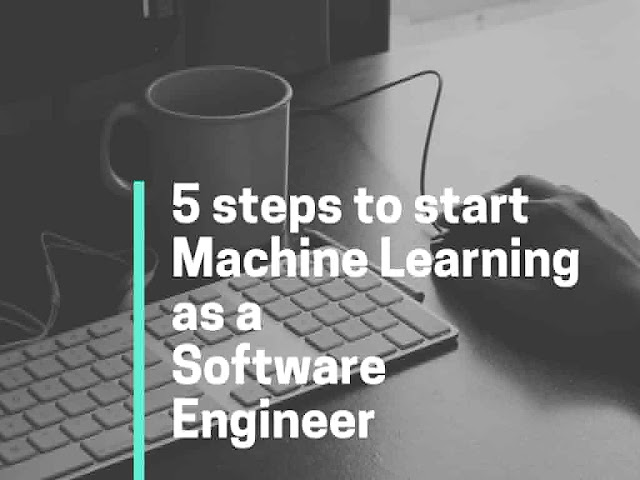5 steps to start machine learning as a software engineer!
Hi everyone, today we are going to be talking about how to move from software engineering to machine learning in the past three months I have been reading up a lot about machine learning. Some of the findings have surprised me, So I'll try to break this down into five essential tips.
The first thing is not to get lost in all the hype. There's a lot of blog posts articles that I read, and they are all about the consequences of machine learning as an engineer Who wants to learn something? We are not too bothered about the results right now. Just focus on getting the basic models working. You know a person who can't write hello world can't think about taking over factories.
The second point which I think is quite essential is not to get lost in all the math behind these models these machine learning models, And I know this is controversial and might sound you know entirely wrong. Still, I started with support vector machines that went to quadratic programming.
Which, in turn, is based on the simplex method?
It's a part of operations research when I started coding this it's going to have bugs because we are software engineers if you want to use a machine.
If you want to use a model, you can also like an Interface as you give some inputs and get some outputs.
Fourth Step:
Yeah, you get some work done instead of understanding how it's working internally. Now, if your purpose is academic or if your goal is to go through a degree, You have the time to spend understanding this model in depth.
But my personal experience is that when I try to learn machine learning this way, I mean understanding all the mathematics. It's like a rabbit hole.
I get lost at number three play to your strengths if your data engineer then Considers this to be an extension of the problem that you have, you know collecting data is something that you do well. Inferring from it is something that you need to do.
Fifth Step:
Now, which is what machine learning entirely is, but at least the parts where you collect data and clean it or filter it out that data is something that you have been dealing with for a long time if You are an algorithm person.
You can start thinking about all the approximation algorithms You have used possibly in programming contests, perhaps in college to understand How does a machine learning model behave or
How do you evaluate its performance?
It makes a lot of sense again it's like playing To Your Strengths but also these companies they don't excite things as much as They possibly could the second thing is that because it's a practical case of machine learning.
There's a lot of decisions that people make before using a particular model instead of you know. Taking a toy problem and then deciding on how to solve it with different ways point number five.
It is probably the most important, and although people know it, they don't do it is coding you need to implement machine learning algorithms to understand it in depth unless you Start coding.
The terminal you won't be able to play around with that kind of model, And of course, you won't get the confidence of actually having programmed that machine learning code.
Now there are a lot of courses online for machine learning. A lot of them are quite good also there's Udacity, there's Kaggle, there's Coursera, but there's one specific machine learning course created by an educator for software engineers. Once I found it, I mean, I didn't waste any time to collaborate with them and make sure that our community gets a discount for this machine learning for software engineers. It is nice because it moves Towards the coding bit initially.
Then you can get into the concepts. So there are some results and outputs that you can see while you're making the transition to machine learning. I like the way they focus on the panda's library before getting into the complex clustering and other algorithms.







No comments:
Post a Comment